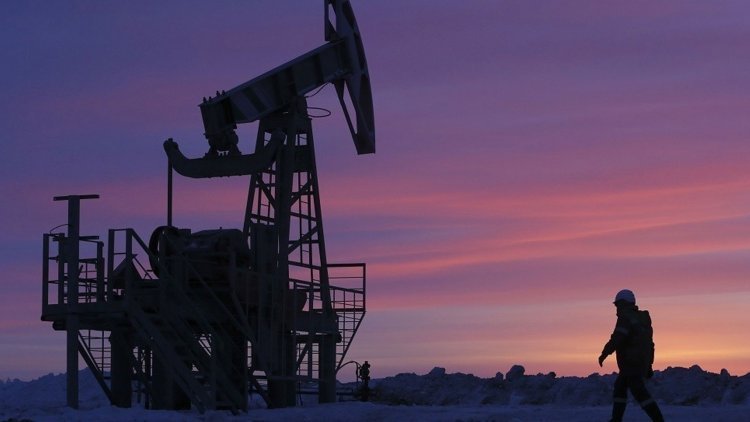Oil prices fall on concerns about the recession as global equities continue to decline
Oil prices fell by nearly $2 per barrel as a result of the spillover selling into the commodities markets. Following the Federal Reserve's announcement that it was not done raising rates, gold prices experienced their largest weekly decline in four weeks.

As central bankers' hawkish rhetoric and deteriorating data fueled recession fears, the selloff in global equities continued on Friday, and the market for government bonds saw further selling pressure.
Oil prices fell by nearly $2 per barrel as a result of the spillover selling into the commodities markets. Following the Federal Reserve's announcement that it was not done raising rates, gold prices experienced their largest weekly decline in four weeks.
In erratic trading, the dollar increased.
A number of central banks, including the Fed, increased interest rates this week in an effort to curb inflation.
A day after the European Central Bank promised to continue tightening monetary policy to combat inflation, the rates on euro zone bonds increased. In order to keep up with the worldwide bond sell-off, U.S. rates also increased.
After data revealed that U.S. corporate activity shrank even more in December, U.S. shares continued to decline, although softer demand helped to dramatically lower inflation.
According to Edward Moya, senior analyst at OANDA, the data "reinforced Wall Street's fears that the economy is rapidly moving into a recession."
The Nasdaq Composite dropped 0.97% to 10,705.41, the S&P 500 dropped 1.11% to 3,852.36 and the Dow Jones Industrial Average dropped 0.85% to 32,920.46.
The STOXX 600 index finished down 1.2% for a weekly loss of about 3.3% for European shares, which had their biggest weekly loss since September.
The MSCI world stock index dropped 1.1%, reaching its lowest point in more than a month.
The eurozone's economic activity shrank for the sixth straight month in December, according to S&P Global's flash purchasing managers index, while the rate of the decline slowed to its lowest level in four months.
In Asia, the broadest MSCI index of Asia-Pacific shares outside of Japan was expected to have its worst week in two months, while the Nikkei index of Japan closed at its lowest level in more than a month.
The dollar index increased by 0.23%, while the euro fell by 0.3%.
Optimism that peak interest rates are approaching was abruptly put to rest by this week's hawkish message from central bankers.
Sunil Krishnan, head of multi-asset at Aviva Investors, stated that central banks "handed a shock to markets that were rebounding in anticipation of policymakers turning dovish on inflation and interest rates."
Like the Fed, the ECB announced a 50-bps increase. Both decided on a lower rise this time but hinted that there will be more to follow.
Its hawkish tone sparked a second day of intense selling on European bond markets, which caused rates on the country's benchmark 10-year bonds to increase.
On Friday, the yield on Germany's rate-sensitive two-year bond climbed to 2.503%, its highest level since 2008.
According to Christoph Rieger, head of rates and credit research at Commerzbank, "We now expect the ECB to go to 3.25% (including 50 bps in March) and the Fed to 5.25%, which argues for ongoing pressure on yields and spreads."
GROWTH WORRIES
Relief at the rumoured end of a protracted accounting access issue with the United States was not enough to boost confidence in China, where markets are teeming with uncertainty surrounding an uncertain reopening.
In the meantime, U.S. retail sales dropped more than anticipated in November, and manufacturing activity in Japan contracted at its sharpest rate in more than two years in December.
By 4:17 p.m. EST (2117 GMT), spot gold prices were up 0.88%, but they remained on track to suffer their worst weekly drop in four weeks.
At $1,800.20 per ounce, gold futures closed up by 0.7%. The opportunity cost of owning non-yielding bullion rises as interest rates rise.
Brent crude futures ended the day at $79.04 per barrel, down 2.4%, and U.S. crude concluded the day at $74.29 per barrel, also down 2.4%.




 admin
admin 




















